Seniors Find Meaning in Music - Part II
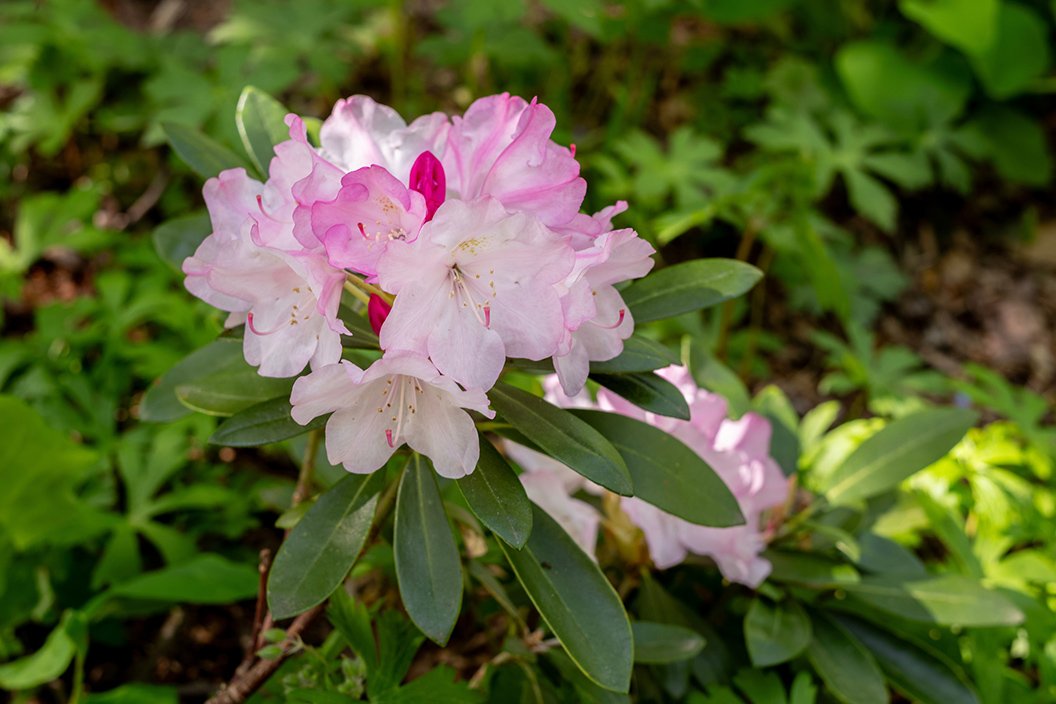
The Swarthmore journeys of music majors and minors Deborah Bergel Aquique ’24, Finn Conaway ’24, Abigail Edwards ’24, Jenna Takach ’24, and Kai Williams ’24 are nearing an end. During the academic year, the seniors reflected on the transformative impact of their studies and looked ahead to futures filled with musical endeavors, both professional and personal. See Part I of the series.
Deborah Bergel Aquique ’24
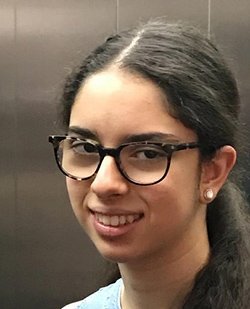 By Chung Sze Kwok ’27
By Chung Sze Kwok ’27
Music does not exist in a vacuum at Swarthmore. “Here, social justice is ingrained into everything, including music,” says Deborah Bergel Aquique ’24. “Music has been a thread that ties together so many things that I enjoy and am passionate about.”
Growing up in Venezuela and Peru, music opportunities did not come easily for Bergel Aquique. “As a child, I’d always really liked performance...but the majority of opportunities I had were in theater—the only musical experience that I had access to in Venezuela was a community choir at the age of four. Growing up with cerebral palsy (CP) also meant I had impacted manual ability and would need modifications and adaptations to play instruments. In Venezuela, accessibility was only targeted towards ‘essential things,’ so unfortunately arts education took a backseat.”
Bergel Aquique began to receive formal music instruction at the age of 12 in Peru, when “my mother realized that I didn’t only like acting, but I also liked singing. I was at the height of my One Direction fandom and I was singing 24/7.” At school, Bergel Aquique joined the choir and received basic vocal and ear training. At around the same time, she became interested in social justice and its connections with music.
When Bergel Aquique first started at Swarthmore, she didn’t plan on being involved with music, partly because she was “really shy about being a mezzo [soprano].” But due to the pandemic, classes started out on Zoom, including Music 48 (Individual Music Instruction). “Since the auditions were recorded, I didn’t have to worry about performing to a live audience...so I decided to take the risk.”
Her risk certainly paid off. Bergel Aquique was accepted into the program, and through her voice lessons with instructor Lara Nie and vocal coach Debra Scurto-Davis, she rediscovered her love for singing. “I had been insecure about my voice, but my lessons taught me that female voices don’t have to be high. My teachers gave me a safe space to explore and discover authenticity in my voice.”
In the spring of her first year, Bergel Aquique felt confident enough to join the Swarthmore College Chorus; she has been a steadfast member every semester since. This year, she is one of only two altos in Critical Mass, a Fetter Chamber Music Program group focused on complex early Renaissance vocal repertoire.
Although she loves singing, Bergel Aquique was hesitant to pursue her desire to study music from a theoretical and academic lens as she had previously faced accessibility limitations. “Due to my cultural background, I believed that if something wasn’t ‘essential’, it wasn’t worth pushing other people into adapting to my needs because it felt like too much to ask.” Nonetheless, thanks to the encouragement from friends Mariam Muhammad ’24 and Lauren Park ’24, Bergel Aquique approached Professor Andrew Hauze ’04 and Professor Jon Kochavi, who were more than happy to adapt their courses to her needs.
“I am eternally grateful for the openness that Jon, Andrew, and my friends have shown me. My professors were extremely helpful in helping me adjust and be able to focus on learning the music itself. I’ve never been made to feel like it’s bad that some things have to be changed; in fact, I have been able to see the value in that.”
Although Bergel Aquique greatly enjoyed studying music theory and general musicianship, it was a course in ethnomusicology — Performing Resistance with Professor Tracey Stewart — that set her on her academic path as a Psychology major and Music and Peace and Conflict Studies double minor. “Through my culture and ethnomusicology classes, I have been able to explore how music can be used as a vehicle for social justice, for example, exposing issues that Indigenous and Native American communities are facing in the United States.”
Bergel Aquique’s wider experiences in Swarthmore’s performing arts programs have allowed her to explore and “connect to so many aspects of [herself]” in ways that she would not have expected. She has long been fascinated by the skill and technique of opera singers, and has had the opportunity not only to learn operatic singing in her voice lessons, but also to shine in an operatic production: Speed Dating and Operetta by Hannah Sobel ’22. “Participating in that production was a major highlight for me.”
In the fall of 2022, Bergel Aquique embraced another way to bridge music with her early love for theater, as well as her interest in environmental justice, by taking part in Swarthmore’s annual Dramathon. Under the timeframe of 48 hours, she and her team devised and performed an original musical set in the underground tunnels of an apocalyptic, overheating New York City. “It was one of the wildest, most chaotic and fun days I’ve had here.”
Reflecting on her holistic musical experience at Swarthmore, Bergel Aquique is quick to express her gratitude. “Music hasn’t always been easy, but it’s always been an enjoyable challenge that I’m very grateful to have the opportunity to face. It’s always been so worth it; I’ve learned to do things here that I’ve never thought I would be capable of doing.”
Finn Conaway ’24
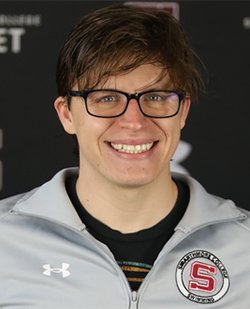 By Nina Sablan ’27
By Nina Sablan ’27
Finn Conaway ’24, a music and political science double major, strives to bring joy to others through music. Self-fulfillment and personal growth are part of why he loves to perform, but the main reason is that he likes to make others feel good.
Conaway picked up the trumpet in the third grade. He recalls an elementary school project where his class built instruments out of pipes and made mouth pieces from bottle caps. His classmates had a difficult time getting sounds from the homemade horns. “I picked [one] up and a pretty clear horn sound came out and the teacher was like, ‘Alright, you need to play trumpet immediately.’ And so I've been playing ever since.”
Living in Arkansas up until the ninth grade, Conaway played in concert band and marching band. “Then I moved out to Oregon during freshman year, and I did basically everything my school had to offer, which was concert band, wind ensemble, jazz ensemble, pit orchestra, and then all types of honor bands.” Also a member of the swim team, Swarthmore was his first choice when he applied to college because it offered a music department and the opportunity to swim. “I knew coming into college that I was definitely going to be a music major. I'd thought about just going to [conservatory], but they didn't have a swim team,” he reflects. While at Swarthmore, Conaway became interested in political science, and has since become a double major in music and political science.
Outside of classes, much of Conaway's time at Swarthmore has been spent at the pool. His team won the conference championship sophomore, junior, and senior years. More important than trophies is the community he’s found through swimming, Conaway says. “I came into Swarthmore during the COVID-year and it was obviously hard for people to make friends but I had that social grounding [from swimming] which was really important.”
When it comes to music, Conaway describes himself as “a two-trick pony.” He plays in both Jazz Ensemble and Orchestra and says, “I've never liked to put myself in one box because I think that there's aspects of performance in each of those two styles that translate to the other.” The technical side of classical and the stylistic freedom of jazz combine in his music. He believes that, “You have to learn the rules in classical and then know how to break them in jazz.”
Abigail Edwards ’24
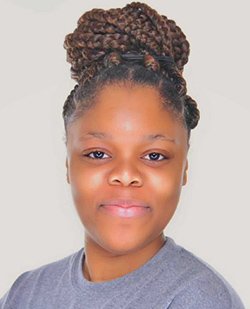 By Nina Sablan ’27
By Nina Sablan ’27
Although violin lessons from the fifth grade served as her formal introduction to the musical world, Abigail Edwards ’24, a political science major with a double minor in music and Black studies, recalls that “Music has always been there.” She grew up with her older brother and cousins whose tendencies to “be creative randomly” inspired her to create herself. Singing was also a part of her childhood. Rooted in Jamaican tradition, music was intertwined with religion for her extended family. “I have a great-great aunt who would pull out a hymn book after dinner, and so everyone would gather around the table and sing hymns.” These vibrant early memories of her family are the foundation of her relationship with music, which has continued to grow while at Swarthmore.
After a year of violin, Edwards switched to the cello in sixth grade and she’s been playing it ever since. While she didn’t like the violin, she describes being “so in love with the cello it’s ridiculous.” The change was in part due to the lower register and how it resonated better with her voice. As opposed to the violin, the cello “sounds closer to what I would sound like if I were singing...there's a lot more emotion attached to it.” In high school, Edwards played in orchestra, competitive ensembles, and for two semesters, the St. Louis Lindenwood University Orchestra after school.
Studying music and playing the cello at Swarthmore was Edwards’s plan from the start. “I knew coming in that I wanted to keep it up [and] I knew that if it wasn't structured in my schedule I wasn't going to do it.” Edwards joined Orchestra as a sophomore, when in-person classes resumed, along with Music 12 and Music 48. Since then she’s taken Music 40 along with Music History and Ethnomusicology courses with Professor Milewski and Professor Stewart.
Edwards finds meaning in her work through a variety of sources. “One is the reality of I made that, I created that, and it's a part of me essentially.” Her music has personal importance, but she believes external inspiration can come from anything. This could be a certain sound from another artist or a TV character. When listening to music, Edwards often asks herself, “‘What are they doing in this song that I really like? I need to figure that out and do something with it.’” Emotional impact comes from the sound itself. “I like for my music to sound as full as possible, as layered as possible [with] a lot of different harmonies.”
Edwards has made a positive impact on communities here at Swarthmore and in the broader area. She’s coached a Chester Children’s Choir student for the past three semesters, as well as volunteering with the Petey Greene Program. For Petey Greene, “We would go to Chester and tutor math to incarcerated students—it was a very monumental time for me, volunteering in that way. I gained an incredible perspective. It's one of those things that stays with you.”
At Swarthmore, Edwards worked with friends to rebuild the African American Student Association after the pandemic, and has been involved with Students of Caribbean Ancestry (SOCA). This year she’s led efforts to create a Black Pre-Law Society on campus.
“These experiences were really important to me because we need a space to air our experiences and share our culture.” Community has been essential in her time at Swarthmore, and she feels that she has benefited from time spent with student groups.
Jenna Takach ’24
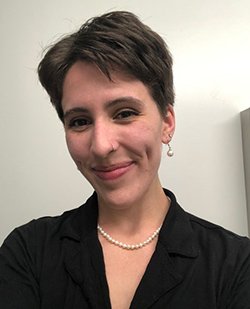 By Chung Sze Kwok ’27
By Chung Sze Kwok ’27
In the words of Jenna Takach ’24, “the music program is a family for every student, whether they’re majors, minors or neither. It’s been such an integral part of my time at Swarthmore and I would encourage everyone to take a music class or go to a concert.” Initially intending to focus her studies on psychology, the welcoming Swarthmore music family set Takach on an unexpected but welcome trajectory; this spring, she will be graduating with not only a major in psychology, but also a double minor in music and dance.
Growing up in San Antonio, Texas, Takach spent most of her childhood singing in the children’s chorus. “I was mostly just a choir kid; that was the extent of musical experience that I had,” she recounts. A dancer as well as a singer, Takach planned to keep music and dance in her life as extracurriculars throughout college, with no intention to major or minor in either discipline.
Upon her arrival at Swarthmore as a QuestBridge Scholar, it quickly became apparent to Takach that music would be far from just a peripheral activity. Transitioning seamlessly from the children’s choir to both the Swarthmore Chorus and Garnet Singers, Takach encountered a range of musicians who altered the course of her college journey. “It was in Chorus that I met some really fantastic people . . . one of them – [Hannah Sobel ’22] – convinced me to take Music 11 and 12 [Harmony, Counterpoint and Form I and II] and everything evolved from there.”
Soon, Takach’s musical activities began to extend far beyond choral singing. As a sophomore, she was cast in Sobel’s original operatic production, Speed Dating – this was “a great way to sing in the concert hall for the first time and get to know other people.”
Sobel’s work as a student conductor in Chorus inspired Takach to follow in their footsteps. In the spring of her sophomore year, Takach began an independent study in choral conducting with then Choral Director Joseph Gregorio. “I approached conducting with the thought that it would be a cool thing to have in my wheelhouse, but as I started taking lessons, I just totally fell in love with it,” she reflects, describing conducting as “the perfect mix of music and movement.” At the end of her junior year, Takach debuted as a conductor for the Garnet Singers, and last fall, she conducted the Swarthmore Chorus under the guidance of current Choral Director Nathan Reiff.
Among all her new musical pursuits, singing has continued to feature prominently in Takach’s college experience. Last fall, as part of the Fetter Chamber Music Program, she played the role of Susanna in a semi-staged production of the second act finale of Mozart’s Le Nozze di Figaro. “Fetter was incredible,” she remarked. “Coming to Swarthmore with mostly just a choir background, I never saw myself singing a solo opera role. Even in a 15-minute scene like that, it was amazing.”
Takach’s musical journey has not been confined to Swarthmore’s campus. During a semester abroad to study Psychology in England, she experienced music and dance across the Atlantic. Guided by a list of choirs to audition for, courtesy of Professor Andrew Hauze ’04, Takach performed Handel’s Messiah with the Philharmonia Chorus at the Royal Albert Hall in London. She then had the opportunity to return to Europe through a Swarthmore-sponsored off-campus education program in England and France, a component of Professor Blasina’s course, ‘Contesting Darkness: Music, Sound, and Place in Gothic Europe.’ This time around, Takach experienced England in a more musical way than on her previous trip, with visits to places such as Canterbury Cathedral and a manuscript library in Cambridge. She appreciated how the music program made the trip accessible for all: “There was a whole variety of people in the class and we were all able to do the same things, regardless of our background.”
Currently, Takach is utilizing the Tri-College Consortium to broaden her musical experience by taking a class at Haverford College on ‘Strange Music: Monsters, Ghosts and Aliens on Stage and Screen.’ “When I saw this class, it reminded me a lot of Andrew [Hauze]’s silent film concerts from the past two years. I thought it sounded really cool, and it had been on my bucket list to take a Tri-Co class.”
Kai Williams ’24
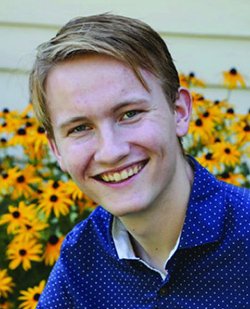 By Aaron Thammavongxay ’25
By Aaron Thammavongxay ’25
Kai Williams ’24 has always been focused on process. Whether through his musical compositions or in the beauty of a particularly complex math problem, he revels in the undertaking of the task at hand.
Music encompasses Williams’ life. His first exposure to performance came in the form of violin lessons in the second grade and subsequent clarinet lessons in the fourth grade, alongside his sister who studied piano throughout. These experiences ultimately led to his discovery of and passion for composition: “At some point, in like sixth grade, I wrote a little bit of music,” he reminisces. “By the time I was in ninth grade, I discovered MuseScore…that really jump started the process of writing a lot.” MuseScore, a music notation software, was essential to Williams' early compositions as it allowed him to notate his ideas and experiment with various instrumental palettes. He also began dabbling in piano, describing the process as self-taught: “I [would] just jam around on the piano, but no formal instruction.”
During these years, Williams also cultivated a love of mathematics, citing long hours spent contemplating puzzle collections, reading about the history of math, and participating in competitions and summer camps. Even before Swarthmore, he knew he would study math and music during his time in college.
While at Swarthmore, Williams has not only embraced his two passions, but has also participated in a wide range of clubs and organizations. He is a valued member of the Swarthmore Men’s Ultimate Frisbee team, has served a year on the Student Government Organization (SGO) and actively participates in Swarthmore’s chapter of Effective Altruism. Within the music department, Williams has performed in the orchestra and chorus. Conducting has emerged as his most memorable performance experience, specifically last semester’s production of The Marriage of Figaro through the Fetter Chamber Music Program. “It’s this great, huge 1000 bar piece of music,” Williams says, there are, “a bunch of different voices adding to it and I think I learned a lot about conducting from that.” Conducting at Swarthmore has been a rewarding experience for Williams on the whole: “I find it is such a cool thing. I think it’s the hardest thing that I’ve ever done in music...there’s a lot of theory, there’s a lot of understanding a bunch of details and trying to synthesize it.” He specifically notes how grateful he is to Andrew Hauze ‘04 and all the members of the lab orchestra for providing the opportunity to refine his skills.
Some of the inspiration for this work harkens back to his early days: “One of the movements is based off...something I wrote freshman year which was based off of something I wrote when I was like 10, which is the first idea that I really found beautiful.” Williams’ composition for Wind Ensemble similarly displays his growth as a composer: “It’s still clearly a composition where I’m learning a lot, but it doesn’t feel as amateurish. It’s the first time I’ve written for the Wind Ensemble, but I’ve really liked how it turned out.”


